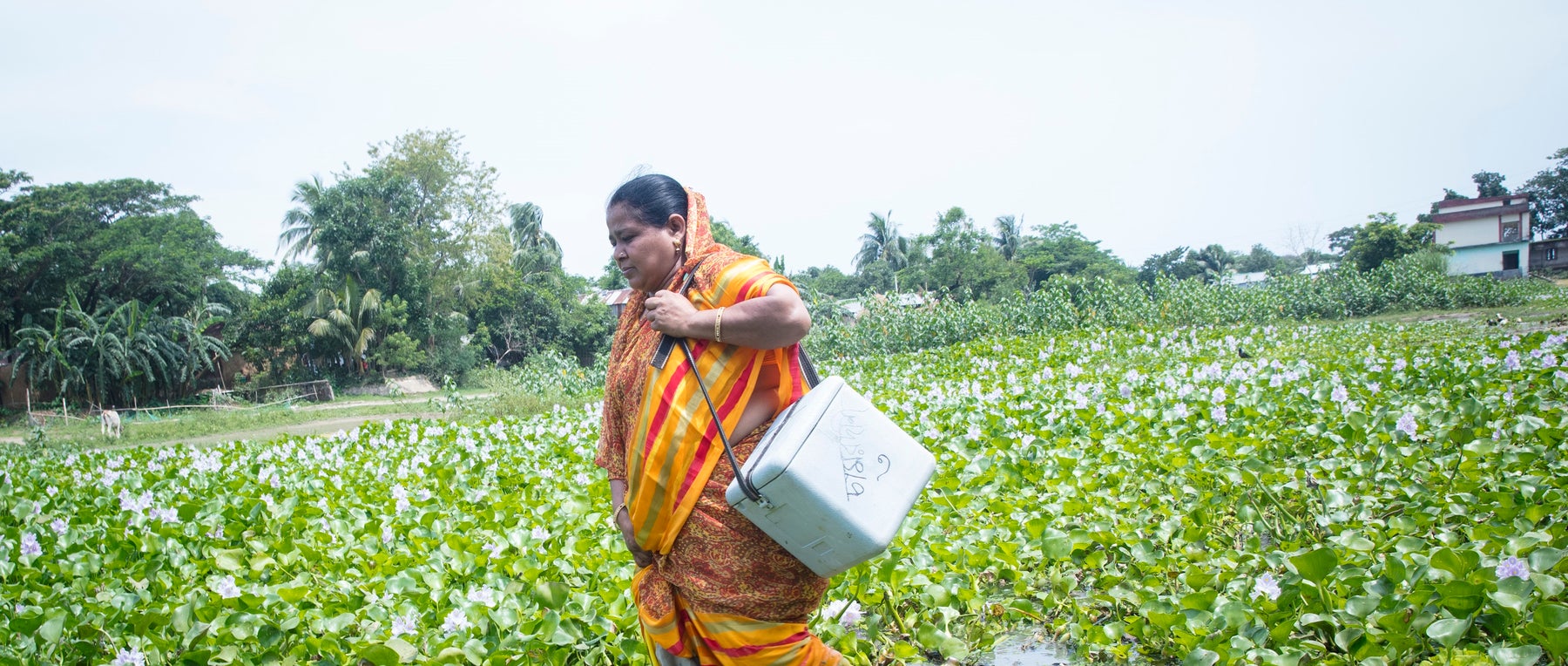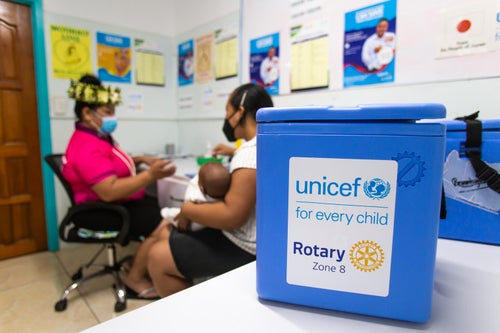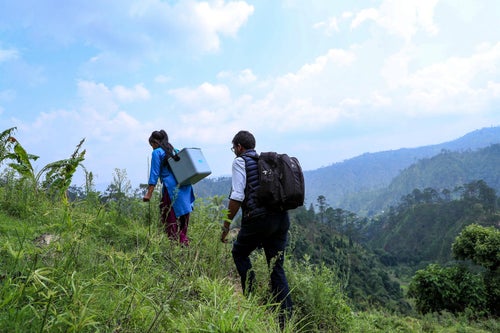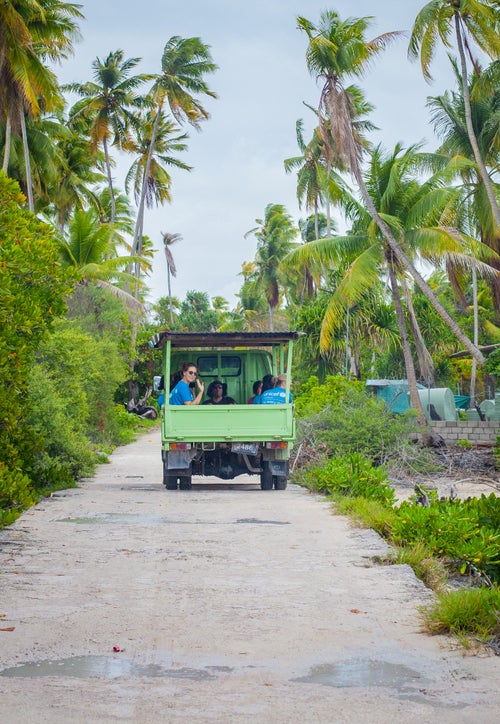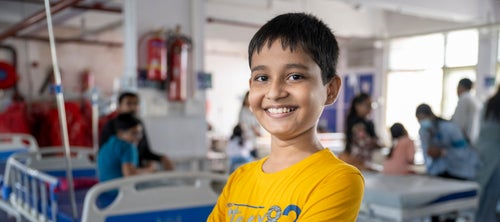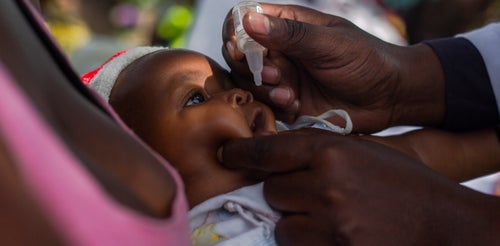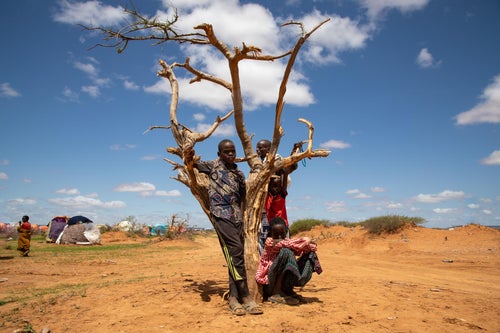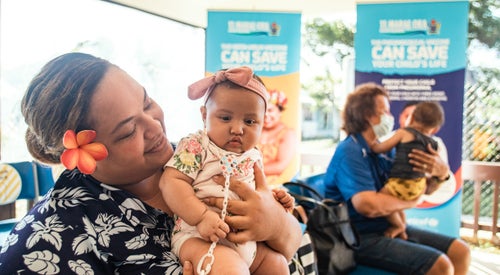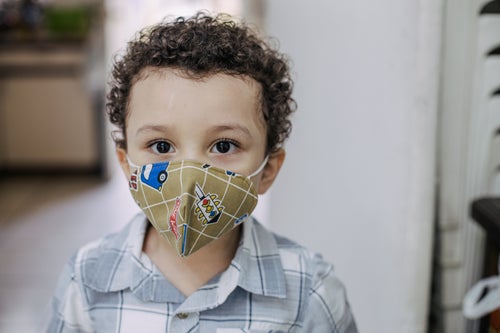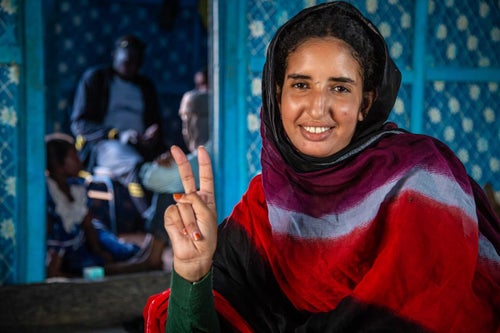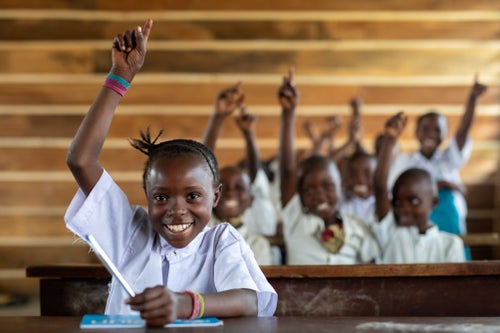Delivering vaccines to children in all corners of the world is a massive undertaking.
With vaccine news continuing to fill our newsfeeds, you’ve probably already heard that these precious vials must be kept at the correct temperature to keep them safe and effective – from the moment they are manufactured until vaccination.
If the temperature is too high or too low the vaccine can lose its potency. But when kept at the correct temperature, a single jab can be life-saving.
That’s where the cold chain comes in. It takes a chain of precisely coordinated events and equipment to transport these life-saving vials – from fridge to fridge.
When the vaccines are ready to be transported to their destination, cold boxes get the job done. Filled with ice blocks, these mini ‘fridges’ keep vaccines cold and safe on their way to a UNICEF-supported health clinic.
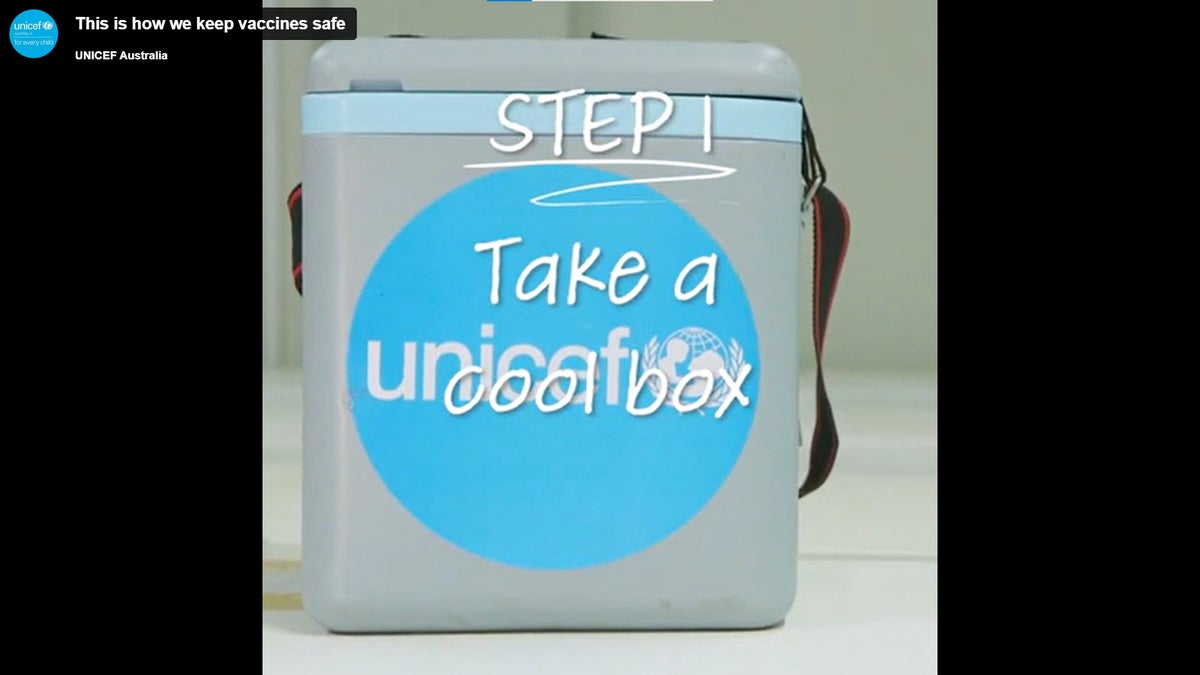
This is how we keep vaccines safe
It’s dedicated field workers like Bina Rani who go the distance to protect children.
As a health assistant working in rural Bangladesh, Bina vaccinates children against diseases such as polio, measles and rubella. But during the COVID-19 pandemic’s lockdown and physical distancing measures, she had to make her journey on foot.
“Every month I have to carry the vaccines to eight centres in total. I walk by foot, across two rivers, sometimes I wade through the duckweed,” she says.
“It’s physically tiring but you won’t find a single one of us health assistants lacking in motivation!”
Donate now to help vaccinate children around the world.
Vaccinate Children. Save Lives.
Help protect children against preventable diseases with lifesaving vaccines.
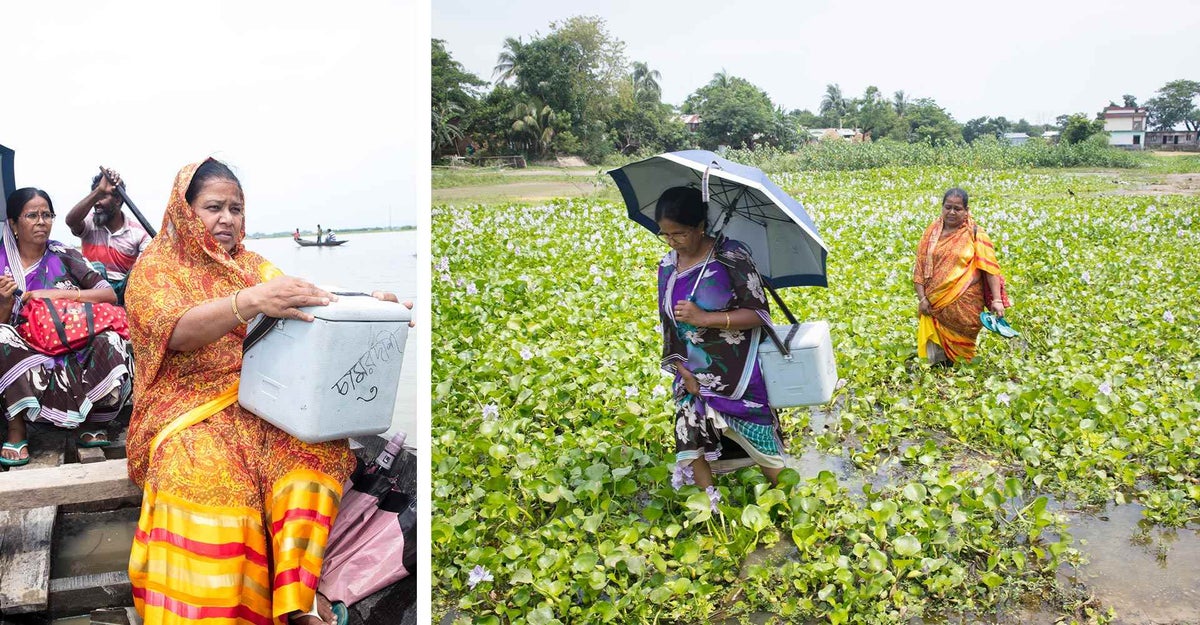
"..you won’t find a single one of us health assistants lacking in motivation!"
COVID-19 lockdowns and overwhelmed health systems have disrupted vaccination campaigns around the world. New data shows that 60 life-saving vaccination campaigns are currently postponed in 50 countries.
That’s putting millions of children at risk of deadly diseases like, measles, polio and yellow fever.
Right now, COVID-19 is having a devastating impact in India where UNICEF is on the ground protecting families. But we must not forget the children in other countries who are missing out on life-saving vaccines and are in danger as a result of the pandemic.
That’s why Bina’s role is so important. If vaccination coverage is not improved, there could be severe outbreaks of preventable diseases, with children most at risk.
UNICEF is on the ground providing:
- Prevention – we deliver vaccines to even the most remote places on earth
- Vaccination – vaccine carriers for health care workers like Bina to keep vaccines safe
- Protection – protective boots, masks, gloves and coveralls to UNICEF vaccinators protecting children where there are outbreaks of COVID-19
We already reach almost half of the world’s children with life-saving vaccines every year. But we need your help to ensure that diseases from the past, stay in the past.
Together, we can make sure make sure COVID-19 doesn’t send children’s health backwards.

Vaccinate Children. Save Lives.
Help protect children against preventable diseases with lifesaving vaccines.
Related articles
Stay up-to-date on UNICEF's work in Australia and around the world



